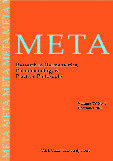Between Positing Existence and Absence of the Object: Interpreting Faith Experience from the Phenomenological Point of View
Abstract
The paper attempts to clarify the structure of the experience of faith by making use of some fundamental elements of the phenomenological theory of knowledge. The dynamic between intention directed towards the object and intuitive fulfilment provides a key to understanding the peculiar form of intentionality proper to faith, in which there is the necessity of the intention directed toward the position of existence, without, however, this being accompanied by the givenness of the object posited as existing. What we find is a kind of anomaly in the relationship between the mode of belief and the fulfilment that is supposed to motivate it. In the case of the position of the object of faith, this fulfilment is not given in any intuitive form. Religious consciousness is thus characterised by the absence of any epistemic basis for justification, but on the other hand also by the necessary permanence of the existential mode of belief. The result is an interplay between presence and absence, fullness and emptiness, certainty and non-determinacy, which will provide the key to revisiting Anselm’s ontological proof of God’s existence from a particular perspective.
Keywords: experience of faith; phenomenology; theory of Knowledge; philosophy of religion; religious Belief; existence of God; ontological argument; intention and fulfilment; Husserl; Anselm of Canterbury
[Full Article PDF]




